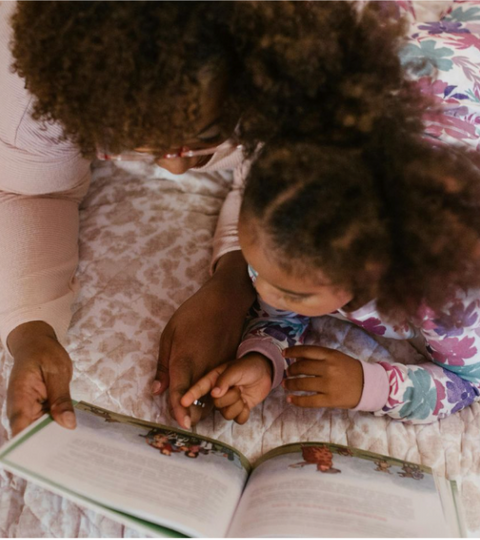How To Talk To Your Kids About Periods
Written by Danielle Burden
This article was written by our team member Danielle, who is a mother of two menstruating children and works in the period care space.
After working for period product companies for several years and also reflecting on my own teenage experiences, it was imperative that I teach my kids as much as it was appropriate for them to prepare for puberty and menstruation. I wanted my children to feel empowered about their bodies and prepared, rather than scared of what was to come! Unashamedly, these conversations happened in the car while driving to activities, at home while we were working in the kitchen, and even while walking the dog.
The Birds and The Bees
We have always tried (maybe not always successfully) to educate our kids on anatomy and basic sex ed, so I wanted to make it a natural progression. The discussions began with basic anatomy; female bodies have three holes, the names and basic functions of the ovaries, fallopian tubes, cervix, vagina VS vulva, etc. Our next important conversation we had were signs that your period might be coming soon. This was super important for their first period and to help them prepare for what would happen monthly.
The Period Talk
When my kids’ breasts started to grow, I knew that they would most likely begin menstruating within the next year. I tried to explain what cramps might feel like (other than the fact they were gifted from hell). We chatted about period poops and the emotional highs and lows that come with puberty, especially as they relate to the menstrual cycle. More than anything, I wanted my kids to know that I was a safe place for them to turn when they had questions about periods and puberty, as well as other more touchy subjects like sex and sexuality! I also wanted them to know that I don’t know everything…it’s okay to say, “I’m not sure about that. Let’s look it up!”
As menstruation came closer for my children, we started to talk about period care options! I showed them liners and pads as well as how to use and dispose of them; we looked at tampons and talked about insertion and safety. We also talked about reusable options, like cups and period underwear. We found affordable options for each and kept those ready in their bathroom. They also helped me to put together a period kit that consisted of a cute carrying case, pads, tampons, liners, individual wipes, and quarters to keep in their backpack. I made sure they knew they could share with a friend if someone else needed supplies!
What I've Learned
The most simple advice I heard and love to share (but don’t always follow as well as I’d like to) is: Don’t. Freak. Out. Maintain your cool. When your kids come to you with questions, you are building a foundation for future conversations. If you freak out or get mad, there is a good chance that they will lose the sense of safety they originally felt when coming to you. I let my kids know that I am human and will sometimes have reactions that are initially beyond my control - I’ll even lead with that sentiment, but I always follow up with love and an open mind.
As kids grow and develop, continue to have open conversations with them about their health and well-being!! Ongoing conversations may include: trying new period care options, managing PMS symptoms, period cycle tracking, understanding cycle phases, and opening the conversation that we can and should consult a doctor if their periods become unmanageable, as well as any further questions regarding menstrual or sexual health. Kids are all distinct individuals, so address these points at a pace that works for both you and them. But above all, don’t be afraid to start the conversation! Normalizing periods and eliminating stigma can start before someone gets their first period.
Be sure to check out our book, June and the Menstrual Mates, written by our co-founder Cindy Belardo for extra assistance in speaking to your kids about periods!

0 Comments
There are no comments yet. Be the first one to post one!